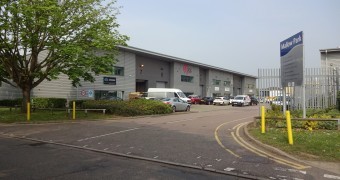Table of contents
What are capital allowances?
Capital allowances are deductions you can make to business assets which allow you to deduct their value from your profits before you pay tax. Capital allowances apply to plant and machinery, such as equipment and business vehicles, which you buy as part of a commercial business transaction and which are integral to its effective functioning. By claiming capital allowances, you are able to take advantage of tax relief on the items’ depreciation over a number of years, effectively writing them off eventually.
In April 2014 the government introduced new rules about claiming capital allowances on commercial property purchases. These rules were designed to help improve cash flow for businesses, to make the process more transparent and to avoid tax relief being claimed multiple times on the same asset. But claiming capital allowances is a complex issue and often depends on both vendor and purchaser properly understanding the rules.
Capital allowances have to be specifically claimed in order to reduce taxable profits and quite often they are not. This may be because the process is seen as too complicated, few records are kept, or that the results yield little value to the business owner. Sometimes the potential claimant simply doesn’t know that they are entitled to claim, and in other instances their tax advisors have not informed them.
Find Commercial Property
Regardless of your commercial property requirements, our team of experts are perfectly placed to help give you the right knowledge when you need it the most. Browse our available commercial property here. If you can’t find what you’re after or have any other queries then please contact a member of the team who will be happy to help.
What are the different capital allowances available?
There are three types of capital allowance available for purchasing commercial property, including the below:
- First-year allowance- this provides capital allowance for businesses who purchase equipment which is energy or water efficient, in order to reduce waste
- Annual investment allowance (AIA)- this allows business owners to claim allowance for plant and machinery, whereby 100% of the cost of the item can be deducted from profit before tax
- Written down allowance- this capital allowance covers items not included under AIA, such as cars which are not kept on business premises
What to do when claiming capital allowance
If you’re looking to purchase a commercial property and intend to claim capital allowances, it is vital that you establish the status of the seller – whether they have claimed in the past so that you are able to do so in the future. During the due diligence phase of your purchase you should ask to see the vendor’s tax records and notes regarding their expenditure while they have owned the property.
In some circumstances, it is still possible, during the purchase process, for the vendor to submit a tax allowances claim, and, if they wish to negotiate the best possible price for their property, they will see the importance of co-operation in this matter. As a potential purchaser of a commercial property without adequate capital allowances having been claimed, you are in a strong position to request a relevant amount be deducted from the sale price as compensation for future tax losses. The onus is firmly on the vendor to put their tax affairs in order so as to not negatively impact on future owners of the business.
Assistance with capital allowances
If you’re considering purchasing a commercial property and are unsure of the tax status of the vendor, or have other issues regarding commercial property purchasing which you need assistance with, speak to one of the Eddisons’ team. Our advisors can offer up-to-date, professional and confidential advice about all aspects of the process.









